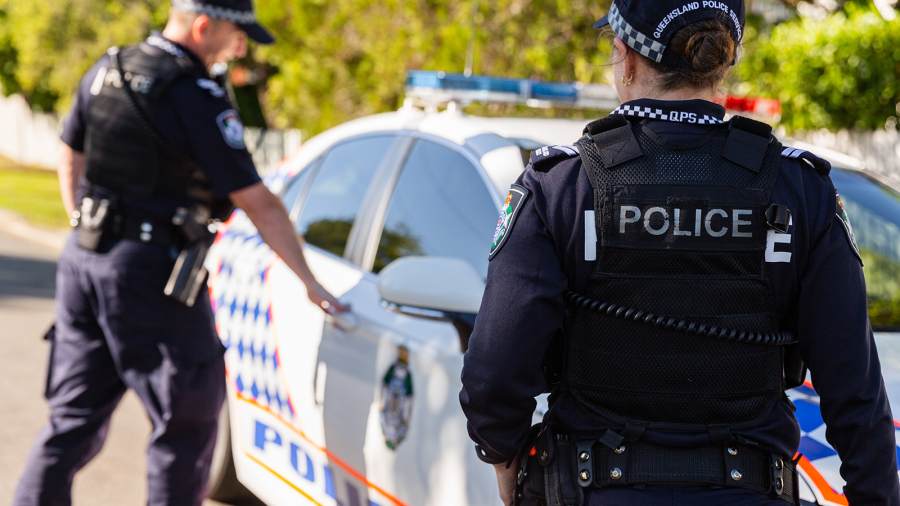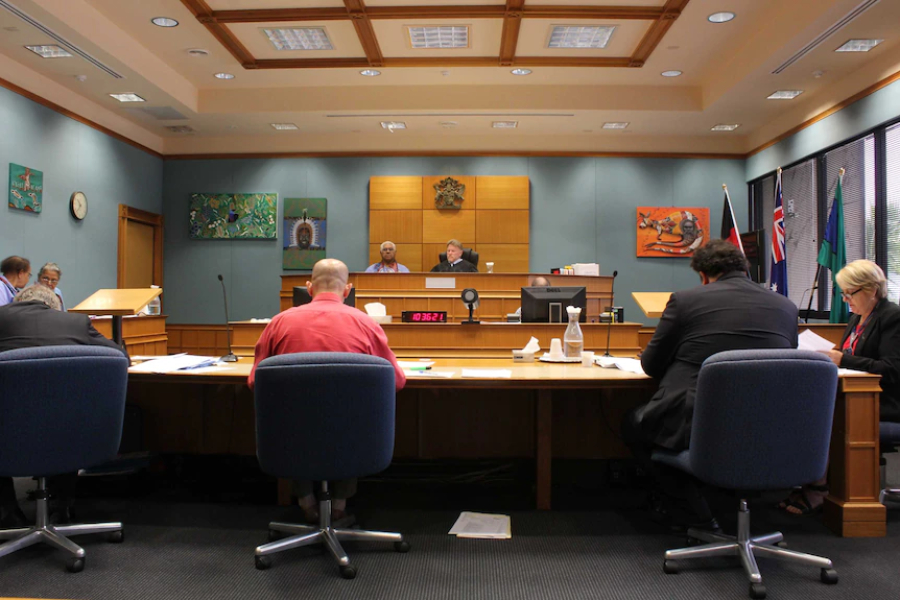Clarity Law
Legal Win – Successful Appeal of a Client’s Recorded Conviction
Written by Jacob Pruden
Recently, we succeeded in an appeal to the District Court. We appealed a magistrate’s decision to record a conviction on our client’s criminal record. At the appeal hearing the judge decided to change the magistrate’s order so a conviction was not recorded in her criminal record.
This is significant for our client because it means her conviction will now not be revealed in any criminal history check. I also means she will not have to declare the conviction for the purposes of travel.
How we did it
In the Queensland court system, if a Magistrates Court imposes a penalty for a criminal offence which the defendant (or his lawyer) deem as being excessive or not imposed by proper application of the law, the defendant can then appeal to a higher authority to change magistrate's decision, that higher authority is the District Court.
To appeal a magistrate's decision, the person appealing (or their layer) needs to file a notice of appeal within 28 days of the decision. After that you are required to file a written outline of argument with the District Court registry, and serve a copy of that outline on the Director of Public Prosecutions. The DPP will represent the Commissioner of Police in the appeal.
In this particular case our client pleaded guilty to a charge of assault occasioning bodily harm. The assault was the pulling of a barmaid's hair and ripping some of the hair out from her scalp. The offence was aggravated because it was committed in a licenced venue within a safe night out precinct of the Sunshine Coast.
Balanced against this, in our client's favour, was the fact that she had absolutely no criminal or traffic history, she had written an unreserved apology to the complainant, she had undertaken alcohol and psychological counselling, she was gainfully employed, and she pleaded guilty at an early opportunity. She was also supported by her husband in court and by character references which spoke very highly of her usual demeanour and absence of aggression.
I personally appeared for the client in the Magistrates Court and argued that a period of probation without conviction was a suitable penalty.
The police prosecutor argued for a sentence of imprisonment, where my client was either to serve some actual time in prison, or her sentence should be wholly suspended. This outcome would necessitate the recording of her conviction.
The magistrate decided to impose probation on my client. However, the sticking point was he did not make me or the client aware that he was going to record a conviction until the at the very end of the hearing of the case. After I heard this I jumped up and asked for an opportunity to make further submissions about the recording of a conviction. The magistrate rebuffed my request, stating that in his opinion given the pain and suffering caused to the complainant and the fact my client held onto her hair for about a minute, that a recording of a conviction was suitable.
We appealed the case on the ground that it was “manifestly excessive”. I prepared the written argument and argued the case in the District Court personally.
The “manifestly excessive” appeal ground means that if the District Court judge hearing the appeal agrees with the argument that the penalty imposed by the magistrate was so harsh that it did not fall within the magistrate's proper exercise of his sentencing discretion, then the District Court ought to change the outcome.
I supported my arguments with a case from the Court of Appeal [R v ZB [2021] QCA 9], and a case from the District Court [NHR v The Commissioner of Police [2021] QDC 67]. The judge in the NHR case decided that a magistrate recording a conviction for a first time offender who punched another patron in a pub, was manifestly excessive. The judge also reviewed other similar cases where a judge had determined that the recording of a conviction for a first-time offender for a charge of assault occasioning bodily harm was excessive.
The short version is, my argument was supported by good cases.
Representatives for the Director of Public Prosecutions opposed my arguments, stating that the magistrate's decision did fall within the proper bounds of his sentencing discretion.
Conclusion
Ultimately, the judge agreed that the recording of the conviction was manifestly excessive, but also identified an appeal point himself, which was our client had been denied “natural justice” because we were taken by surprise by the recording of a conviction, and I was not given an opportunity to respond to that aspect of the magistrate’s decision.
The judge overruled the magistrate’s order and ordered that no conviction should be recorded in our client’s criminal history.
Experience matters
We at Clarity Law are all experienced lawyers. I practised as a barrister for years before joining Clarity Law as a solicitor. Our experience means we are able to identify when a magistrate has made an error, and properly protect our clients’ rights by appealing that error when it matters; as it did in this case. Fortunately, we very rarely appeal because we have a proven track record for excellent results for our clients!
Section 42 of the Domestic and Family Violence Protection Act 2012 (the Act) is a crucial provision that provides the court with the power to make or vary a domestic violence order after the defendant pleads guilty to breaching the DVO. The Act was introduced to protect individuals who have been victims of domestic and family violence. This article will examine the key provisions of section 42 and its significance where someone is charged contravening a domestic violence order.
What is Domestic Violence?
A court can make a domestic violence order if it is satisfied that a person has committed domestic violence or is likely to commit domestic violence in the future. Domestic violence can take various forms, including physical violence, emotional abuse, and financial abuse. It can also involve controlling behaviour and coercion.
The court can make an order even if the person who is likely to commit domestic violence has not yet committed the offence. The court must be satisfied that there are reasonable grounds to believe that the person is likely to commit domestic violence in the future. The order can be made against a family member, partner, or spouse.
What is a Domestic Violence Order
A domestic violence order can contain various provisions, including prohibiting the person from committing domestic violence or contacting the victim. It can also require the person to attend counselling or to undergo treatment for drug or alcohol addiction.
One of the significant advantages of a domestic violence order is that it can be made without the consent of the victim. This is particularly important because victims of domestic violence may be reluctant to come forward due to fear of reprisals. The order can be made on behalf of the victim by a police officer, a legal representative, or any other person authorised by the court.
Breaching a Domestic Violence Order
If a person breaches a domestic violence order, they may be subject to criminal charges. This can result in a fine, community service or if the offence is bad enough imprisonment. A breach of a domestic violence order is a serious offence, and the court may take it into account when considering future orders. We have a full article on breaching a DVO and its consequences on our website.
What happens if I plead guilty to breaching a domestic violence order?
In addition to punishing a person for breaching a DVO the court may also make other orders to protect the aggrieved, such as varying an existing DVO to an order.
The law requires that the court must;
- consider the order and whether, in the circumstances, the order needs to be varied; and then may;
- vary the order
The types of variation the court might consider includes;
- Limiting the ability of the defendant to see or communicate with the aggrieved or asking people to contact the aggrieved
- Order the defendant to leave the premises and not come back (an ouster order)
- Making the defendant attend an approved intervention program
- Not allowing the defendant to come to the house without written permission
- Limiting how close the defendant can come to the aggrieved
Will I get a chance to tell the court not to change the order?
The court must give the following persons a reasonable opportunity to present evidence and to prepare and make submissions about the variation of the order.
- the defendant
- the prosecuting authority for the offence
- reasonably practicable, the person who is or would be named as the aggrieved in the order.
In practice the discussion on whether to amend the current DVO is almost always done immediately after the sentence for breaching the DVO occurs. It means a defendant or their lawyer must be ready with arguments seeking the DVO not be amended
How do I stop the court from amending the order
You cannot stop the court from considering whether to amend they order as they are required to do this. What you need is well researched and considered arguments why the DVO should not be amended (if that is appropriate).
Are you really telling me if I breach a DVO I could be kicked out of home?
Yes. Often the amendment to the order will be more severe and have more consequences than the actual punishment for breaching the DVO.
You could be ordered to leave the house even if the aggrieved wants you to stay there. It all obviously depends on the facts of each case.
A recent case we saw a person had pleaded guilty to breaching a DVO. There was no violence or threats of violence and the defendant had and criminal history. The court after ordering a small fine then amended the order so that the defendant was only allowed to go to or stay at the home with the written permission of the aggrieved and that permission could be withdrawn at any time. It not hard to imagine how this situation could lead to more breaches in the future.
If I am ordered to leave our home I will have nowhere to live
This is often the consequence of the change to the DVO. The rental crisis has meant even getting somewhere to stay is difficult to say nothing of the cost.
What we find tends to happen is the couple will still live together in breach of the DVO which leads to constant arrests and in the end a likely prison sentence.
What can be done if the court changes the order?
You can apply back to the court to vary the order again but this is not easy and will take time. The courts are very reluctant to change an order by removing clauses.
You are going to say you need a lawyer to represent you
We are. There are plenty of charges where you could act for yourself. There are other charges where its fine to use the duty lawyer at court. However even minor breach could lead to the varying of the existing order for example preventing you from living at the family house unless your partner gives you written permission (that could be withdrawn at any time).
The consequences of the court amending the DVO means if you are charged with contravening a DVO you need an experienced lawyer not only to minimise the penalty but to seek the court not amended the DVO. A duty lawyer just won’t have time to properly prepare to argue against the amendment of the DVO.
Summary
In conclusion, section 42 of the Domestic and Family Violence Protection Act 2012 is an essential provision that provides protection to victims of domestic violence. However the courts power to amend the existing DVO order even if the aggrieved does not want it or does not ask for it can have devastating consequences for the defendant.
How do I get more information or engage Clarity Law to act for me?
If you want to engage us or just need further information or advice then you can either;
- Use our contact form and we will contact you by email or phone at a time that suits you
- Book a time for us to call you
- Call us on 1300 952 255 seven days a week, 7am to 7pm
- Email This email address is being protected from spambots. You need JavaScript enabled to view it.
We are a no pressure law firm, we are happy to provide information to assist you, if you want to engage us then great, if not then you at least have more information about contravening a DVO. You won’t be chased or hounded to engage us. Remember its critical you get advice before going to court, as the charge can have an impact on you, your family and your employment or business.
Charged with wilful exposure, or just want to know more about the charge?
What is Wilful Exposure
Wilful exposure is an offence which arises when a person wilfully exposes his, her or their genitals in a public place, unless that person has a reasonable excuse.
A person may also be guilty of Wilful exposure if, from a private place, that is so close to a public place that it could be seen from a public place, they wilfully expose their genitals so that they may be seen from the public place, without reasonable excuse.
The offence is made more serious if in the course of the exposure, it is done with the express purpose of offending or embarrassing another person.
The penalty for this offence carries a maximum penalty of—
(a) 2 penalty units; or
(b) if the offence involves circumstances of aggravation—40 penalty units or 1 year’s imprisonment.
What does the prosecution need to prove?
To be found guilty of wilful exposure, the Police Prosecution Corps must prove, beyond a reasonable doubt the following:
- the defendant wilfully;
- exposed their genitals;
- in a public place; or
- from a place that is so near a public place that it may be seen from the public place.
Note: It is sufficient for item 4 above, for a person to stand in their private residence in a street facing room (meaning facing the road) where that person could be seen from the road
Are there any defences?
The simple answer is yes. There are a number of defences that are available;
- The alleged act was not in or near a public place;
- The defendant did not wilfully expose their genitals;
- The defendant was in fact not the person whom is alleged to have committed the act (identification issue); and
- That any such exposure was not done with the intent to offend or embarrass a person (if applicable).
It is not an offence of wilful exposure for a person to breastfeed a child in public or near a public place. This is a protected act under the anti-discrimination legislation and does not constitute an offence. If you have been charged with an offence of wilful exposure due to breastfeeding in public, contact our office for a free initial consultation.
Why should I choose you and not just represent myself?
Just some reasons include;
- we know the Magistrates and what they want to hear to give you the best outcome for a wilful exposure charge
- we have good relationships with the police prosecutors meaning we can often have them agree to the sentence we are asking the court to impose
- we are there to help you through the process and make everything as stress free as possible, in most cases you will not have to say anything in court
- engaging us shows the court you are taking your charges seriously
- your matter will be heard early, often first, you do not have to wait for 20-30 other matters to be heard before you
- you will be fully informed of what is to happen in court and what this means for you after court
- unlike the police or the magistrate, we are there to look after you, your privacy and your interests
Our experienced solicitors understand the sensitivity and potential embarrassment this charge may have on someone, any conversation had with our office is strictly confidential, with as few eyes on your file as necessary.
Conclusion
This article is by no means an exhaustive guide to this offence, but stands as a handy ready reckoner for someone looking for more information on or being charged with the offence. If you are charged with the offence, please contact our office for a free initial consultation.
How do I get more information or engage Clarity Law to act for me?
If you want to engage us or just need further information or advice then you can either;
- Use our contact form and we will contact you by email or phone at a time that suits you
- Book a time for us to call you
- Call us on 1300 952 255 seven days a week, 7am to 7pm
- Email This email address is being protected from spambots. You need JavaScript enabled to view it.
The charge of Contravene direction or requirement is a common charge defendants can find themselves falling afoul of. The scope of the offence is broad, however generally would fall into two categories:
- Failing to comply with a “move on” (or other like) order from a Police Officer; and
- Failing to comply with a direction regarding a public official, such as not giving your name, address and date of birth to a public official. Note, it is a separate offence to obstruct or impede a Police officer in the conduct of their duties.
The offence
The offence, generally speaking is less serious than a similar offence of obstruct/assault Police. It is also critical to note that this offence does not cover a circumstance where a person fails to provide a specimen of breath for a roadside or BAS reading, as that is a separate and often serious offence.
For a person to be charged with the offence, the following must have occurred:
- A Police Officer has given a reasonable direction or requirement in the following circumstances:
- Required a person to give their name, address and date of birth to a public official; or
- Obstructed a public official in the exercise of that official’s duties; or
- Ceasing to comply with reasonable direction (a “move on” order) in circumstances where a person’s conduct is:
- causing anxiety to a person entering, at or leaving the place, reasonably arising in all the circumstances;
- interfering with trade or business at the place by unnecessarily obstructing, hindering or impeding someone entering, at or leaving the place;
- disorderly, indecent, offensive, or threatening to someone entering, at or leaving the place;
- disrupting the peaceable and orderly conduct of any event, entertainment or gathering at the place; and
- A person or persons have, without a reasonable excuse contravened the requirement or direction.
For the charge to succeed, the Police Officer must give a warning that by failing to comply with the direction or requirement, the person is committing an offence.
NOTE, the offence becomes more serious (aggravated) if the offence occurs in (or in close proximity to) a licenced premises, or a public place that is designated as a safe night precinct (i.e Surfers Paradise, The Strand or Fortitude Valley).
Defences
In some cases, it is a defence to have a reasonable excuse for not complying with the direction. Reasonable excuse, does not have a hard and fast definition – but is more in the manner of interpretation. In essence, would an ordinary person consider that the excuse to not comply was reasonable?
It is further accepted that, unless it is specifically provided by law, it is a reasonable excuse to not comply with a direction or requirement, if doing so would tend to incriminate the person. Some specific exceptions to this rule relate to authorisation and conduct of forensic procedures, such as DNA collection.
Penalty
In most circumstances, the offence is a fine only offence (some exceptions apply depending on the specific nature of the contravention), however this does not mean that it is something that should be taken lightly. A conviction for the offence may have a significant impact on a person, especially in circumstances where other criminal matters are present.
The maximum fine penalty will depend on whether or not the previously noted aggravating features are present.
If a person commits the offence in a prescribed place, the maximum fine is 60 penalty units (at time of writing is $8,675.00) plus the Court offender levy, which if heard in the Magistrates Court is currently $133.60.
Otherwise, a maximum fine of 40 penalty units ($5,750.00) plus any relevant offender levy.
Can Clarity Law help me?
It is understandable that for a person who is a first-time offender, they may wonder why they should engage a lawyer to act for them when they face a single contravene direction or requirement offence.
Our dedicated team has experience handling these matters. Your Clarity Law solicitor will carefully review and consider your case and may be able to engage with prosecutors to negotiate depending on the facts. Engaging an experienced lawyer (such as us) will allow you to explore your options with respect of the offence, assist in reducing the fineable amount and improving the likelihood of no conviction being recorded.
We also have fixed prices so you know with certianty what you will pay. Our prices can be found here.
Conclusion
This article, is by no means a complete guide to this type of offence, but should be a useful starting point for someone who has been charged but not yet been to court. If you are charged with an offence, please contact our office for a free initial consultation.
How do I get more information or engage Clarity Law to act for me?
If you want to engage us or just need further information or advice then you can either;
- Use our contact form and we will contact you by email or phone at a time that suits you
- Book a time for us to call you
- Call us on 1300 952 255 seven days a week, 7am to 7pm
- Email This email address is being protected from spambots. You need JavaScript enabled to view it.
Introduction to Workcover Fraud Offences in Queensland
Written by Jacob Pruden
WorkCover is a taxpayer funded, government run insurer. A person can claim WorkCover if the person has suffered an injury at, or because of, work and due to that injury, the person must take time off work or can only work at reduced capacity. The injured person can then claim compensation to help keep them financially secure, while also working towards rehabilitation and getting back to work.
The law governing the WorkCover rules is the Workers’ Compensation and Rehabilitation Act 2003.
A person must be entirely honest in their dealings with WorkCover. It is an offence to falsely claim an injury, or continue to work at full capacity while receiving Workcover payments or not to inform Workcover if the person returns to work while still receiving payments.
How offences are detected
Offences under the Workcover legislation are detected by direct investigations. For example, investigators appointed by Workcover may shadow a claimant to make sure he is not continuing to work despite receiving compensation. The investigation may involve confirming or assessing the extent of claimed injuries, so if a roofer claims he has injured his back such that he is unable to work on the top of a roof, the investigator may covertly follow him to make sure he is not working on any roofs. The investigator has the power to require a person to give information or documents relevant to an investigation (such as bank records).
Offences
A person who misleads Workcover about the extent she is working or the extent of her injuries, and simultaneously receives compensation or has a claim for compensation pending, commits an offence.
The two offences under the Act with the highest maximum penalties are fraud and providing false or misleading information. These are section 533 and 534 respectively.
Penalties
Section 533 makes it an offence to defraud, or attempt to defraud, Workcover. The penalty is a maximum fine of $71,875 or maximum imprisonment of 5 years.
Section 534 makes it an offence provide false or misleading information or documents to Workcover. The penalty for this is a maximum fine of $21,577 or a maximum of 1 year imprisonment.
Usual Penalties
The two main offences under the Workers’ Compensation and Rehabilitation Act 2003 are generally punished firmly. The penalty will normally be harsher the higher the amount defrauded or attempted to be defrauded. The usual penalty will be imprisonment, whether some actual imprisonment or a period of wholly suspended imprisonment. For a useful summary of case outcomes can be found here.
Possible Defences
For a fraud offence, all Workcover must establish is a worker who is receiving compensation engaged in work and did not notify Workcover or, to establish attempted fraud, the person lodged an application for compensation, engaged in work, and did not notify Workcover (before receiving compensation). This is easily established if someone earns money while receiving Workcover compensation. Usually, to successfully defend a charge of Workcover fraud, defence would have to show how, despite Workcover’s evidence, the defendant did not earn money while receiving Workcover compensation, or if she did so, it was a genuine mistake. Given Workcover will require the defendant to sign a document undertaking to inform Workcover of any change of circumstances, and will provide the defendant documents stressing the importance of reporting any changes in circumstances (i.e. improvements in injuries, starting a new job etc), a defence of mistake would require a high bar to succeed.
Can Clarity Law Help Me?
We have experience in assisting with these types of cases. For the last case we had, we were able to reduce the alleged fraud by thousands of dollars, and we reduced the time period the client was alleged to have worked for while receiving compensation by months. We were able to do this by careful case analysis and negotiations with the prosecutors. However, these types of cases are time consuming and can be complicated, so we highly recommend you engage experienced private lawyers (such as us) to assist.
Conclusion
This article is by no means a complete guide to Workcover prosecutions, but we trust it serves as a useful introduction. If you are charged by Workcover, or are requested to give an interview, please contact our office for a free initial consultation.
How do I get more information or engage Clarity Law to act for me?
If you want to engage us or just need further information or advice then you can either;
- Use our contact form and we will contact you by email or phone at a time that suits you
- Visit our website at www.claritylaw.com.au
- Call us on 1300 952 255 seven days a week, 7am to 7pm
- Email This email address is being protected from spambots. You need JavaScript enabled to view it.
Anyone can be charged with a criminal offence. It can happen unexpectedly and suddenly. A night out with friends can end in someone getting punched, or a temporary domestic violence order can lead to a string of breach allegations. Sometimes, a moment of inattention while driving can lead to catastrophic consequences. In any of these cases of more, you are suddenly in a situation where expert advice is critical.
Can a Criminal Lawyer Help Me?
Lawyers are professionals. They learn for years in university, then undertake a practical legal training course, then undergo at least two years of supervision as a junior lawyer before being able to manage cases of their own. All this gathered knowledge and experience is intended to prepare the lawyer to professionally represent the interests of his or her clients.
If you are defending a criminal charge, what are your interests? To have the charges dropped, to successfully defend the charges in court, or get the most lenient possible penalty after a plea of guilty.
So, how can a lawyer help you with this? The legal system is complex, and it is very hard for someone untrained to properly navigate it. The chance of you getting the best possible outcome on your own is very low.
What does a Criminal Lawyer do?
Analyse your case
Understand your situation. Find out exactly what you are charged with and the probable evidence to support each charge. Examine your criminal or traffic history (if any) and form a strategy for dealing with that in court. Take your detailed instructions about the charges to see if you have been correctly charged and if there are defences available.
Are you charged with assaulting someone at a licenced venue? Perhaps the full story is the person was assaulted by you, but only because he hit you first and you retaliated. In that case, the defences of self-defence and provocation could be explored.
What if you are charged with breaching a domestic violence order? Maybe you legitimately contacted the other party to make child arrangements, and you can prove this by producing text messages.
Maybe the prosecution simply cannot prove the charge. For example, have you been charged with driving under the influence of alcohol because police breathalysed you near, but not inside, your car? Then maybe you could argue that you got intoxication after you arrived at the location.
All these options and possibilities might be explored by a lawyer, but you will simply not have the technical knowledge or experience to do that yourself.
Negotiate with the prosecution
We at Clarity Law have a great track record for successfully negotiation with the prosecutors. Did you know it is possible, for the right case, to get charges dropped or downgraded?
For example, I recently persuaded the prosecutors to downgrade a charge of dangerous driving to a charge of careless driving. This was a massive deal for the client because dangerous driving has a mandatory minimum 6 months licence disqualification, whereas careless driving has no mandatory minimum. The client was a truck driver, so thanks to our negotiations he was able to keep his livelihood.
Another example is where I persuaded the prosecution, through careful analysis of body-worn footage, family law orders and text messages, to drop a charge of breaching a domestic violence order. That kind of outcome does not come around too often, I can tell you!
Sometimes, we can negotiate the “facts” of the charge to something more favourable. For example, I once had a case where the client was accused of a serious assault by poking a 60 year-old in the stomach with his finger, then spear tackling him to the ground. Those facts were amended to only reflect the poking to the stomach, which of course sounded a lot better for the client in court!
Represent you in Court
I cannot tell you how many times I have seen people turn up to court with no plan at all, and end up representing themselves, or, at best, getting a busy and time-short duty lawyer to do it. In my experience, most people are not particularly good advocates for themselves, and if they say the right things in court, it is more good luck than good planning.
If you engage an experienced lawyer ahead of time, then we are able form a strategy, gather the documents that will help you (such as character references) and say (or not say) just the right things to get you a favourable outcome.
Won’t the Outcome be the same if I just get a Duty Lawyer or Represent Myself?
No, it really won’t. Quality representation can make a massive difference to the outcome of your case. Do you not want a conviction? We know the laws and cases to make that argument. Do you want to minimise the penalty? Then we know the right submissions to make.
Another thing which is very important is we know the judges and magistrates. For better or worse, this makes a big difference to the outcome. For example, I recently represented a client for a middle-range drink driving offence, but the blood-alcohol content reading was right at the top of the middle-range. Most of the time, it would be 5 – 6 months licence disqualification, but because I knew it was a new magistrate, I thought I would have a shot at getting the minimum disqualification for that offence, which is 3 months. It worked. The prosecutor looked stunned, and the client overjoyed as we left the court.
We are aware of another magistrate who will not grant work licences if the defendant has not completed the QTOP program. This has led to many a disappointed self-represented person who has had his or her work licence application rejected for that reason alone.
Conclusion
Being charged with a criminal offence is a big deal. The outcome can have lasting consequences for your future. We at Clarity Law all have considerable experience in criminal and traffic law. We also know our fees are reasonable compared to our competitors. If you want competent, responsive and experienced representation for a matter, give us a call or email for a free consultation. We are confident you will not regret using Clarity Law for your case.
How do I get more information or engage Clarity Law to act for me?
If you want to engage us or just need further obligation free information or advice then you can either;
- Use our contact form and we will contact you by email or phone at a time that suits you
- Call us on 1300 952 255 seven days a week, 7am to 7pm
- Book a time for us to call you
- Email This email address is being protected from spambots. You need JavaScript enabled to view it.
Other Areas of Law
Drink Drioving Lawyer Brisbane
Drink Driving lawyer Caloundra
Guide to a Choking, Suffocation or Strangulation Charge in Queensland
Written by Jacob Pruden
The offence of choking, suffocation or strangulation (to be “choking” hereafter) is contained in section 315A of the Criminal Code Act 1899.
The section states:
(1) A person commits a crime if—
(a) the person unlawfully chokes, suffocates or strangles another person, without the other person’s consent; and
(b) either—
(i) the person is in a domestic relationship with the other person; or
(ii) the choking, suffocation or strangulation is associated domestic violence under the Domestic and Family Violence Protection Act 2012.
The penalty is a maximum of 7 years imprisonment.
Meaning of Choking, Suffocation, or Strangulation
The Queensland Court of Appeal has held that the act of choking requires that the defendant hinders or restricts the breathing of the complainant. The choking does not require proof that breathing was completely stopped, and the choking requires some detrimental effect on the breathing of the complainant.
A Supreme Court Justice has said, “Even if the restriction of the breathing, as a result of the action of choking the victim, is of short duration, without any lasting injury and does not result in a complete stoppage of the breath of the victim, that will be sufficient, as the offence is directed at deterring that type of conduct from occurring at all.”
It will not be enough, however, for the defendant to “merely put his or her hands to the neck of the victim.”
Possible Defences
No Domestic Relationship
This offence only occurs in the context of a domestic relationship. A domestic relationship is defined under section 13 of the Domestic and Family Violence Protection Act 2012 as:
(a) an intimate personal relationship; or
(b) a family relationship; or
(c) an informal care relationship.
This will cover every family relationships, even if the family relationship is not by blood. It will also cover many sexual relationships, but possibly not a casual sexual encounter.
Therefore, it would be a defence to this charge if the evidence showed there was no domestic relationship between the complainant and the defendant.
It is important to note that this charge does not apply in situations where the person choked is a stranger or friend to the defendant. In that case it would likely be a charge of assault or grievous bodily harm, depending on the extent of the injuries to the complainant.
If the jury found there was not a domestic relationship between the defendant and the complainant, then the jury would be obliged to find the defendant not guilty based on the prosecution being unable to prove the charge.
Self-defence
Self-defence is available. The action of choking would have to be proportionate to the threat or violence experienced by the defendant.
To use a clear-cut example, if the complainant was coming at the defendant with a knife and defendant stopped the attack by choking the complainant, this would be an argument for self-defence as it would seem proportionate to the threat the defendant experienced at the time.
To use a different example, if the complainant had slapped the defendant to the face, and the defendant responded by choking the complainant, it is unlikely this would hold up as a defence as the defendant’s was an unreasonable/disproportionate response to the violence/threat.
If a jury was to find the defence of self-defence applied, then the defendant would be acquitted or found not guilty of the offence.
Provocation not a defence.
The law states that “assault” is not an element of the offence, the main point which flows from this is that the defence of provocation is not available to someone who commits a choking offence. Put another way, the defence of provocation is only available as a defence for offences which have “assault” as an element of the offence. This includes common assault, assault occasioning bodily harm, and serious assault.
The choking did not happen.
It is a defence to the charge if it did not happen. This defence might be used when the defendant argues the complainant simply made up the allegation. The defence is more likely to succeed if there are no photographs of injury to the neck or there was no “recent complaint” – i.e., the complainant goes to the police to make the allegation weeks or months later.
Another argument could be that there was some violence, but it was not choking. For example, the complainant was grabbed roughly by the shoulders or hands were placed on his or her neck, but the breathing was not restricted.
Alternate charges
Defence lawyers can write to the prosecution and argue that a charge of assault occasioning bodily harm or common assault should be in place of a choking offence. This will sometimes succeed if it is ambiguous whether the complainant’s breathing was actually restricted, or there has been a push on the neck or touching of the neck rather than a restriction of breath.
Court which will hear the case
This offence is classified as an ‘indictable offence’, which means it will only be heard in the District Court or (in some situations, if certain other charges are present) the Supreme Court. Although it will start in the Magistrates Court, this will only be for the ‘committal’ process, and it will eventually be transferred to a higher court. This means any trial will be heard by a judge and jury, and proceedings will generally take longer to conclude than if it remained in the Magistrates Court.

Bail
The offence of choking is designated as a “show cause” offence according to section 16 of the Bail Act 1980. This means a person charged with this offence will (usually) not be granted bail by police, and will then need to make a bail application to the court to be released from custody. The defendant would be required to “show cause” to a court why his or her detention in custody (pending resolution of his charge) is not justified.
Usual Penalties
This offence is considered to be very serious by the courts and the parliament. As such, the most common outcome is the defendant spends some time in prison. The explanatory notes for the legislation introducing this charge stated “The new strangulation offence and the significant penalty attached, reflect that this behaviour is not only inherently dangerous, but is a predictive indicator of escalation in domestic violence offending, including homicide.”
Generally, sentences for choking offences can range from approximately 2 to 4 years imprisonment, depending on the seriousness of the violence and the criminal history of the offender. There are cases where the sentence is less than 2 years, although these cases are exceptional. There are also cases where the sentence is longer than 4 years, but these cases generally deal with more than one offence.
Offenders will ordinarily be required to serve a third of the sentence in actual jail if it was a plea of guilty, or serve half or more of the sentence in jail if it was a trial and a plea of not guilty. In rare cases, an offender will serve no time in jail, even though the “head sentence” is 2 years.
It is clear then, that an offender should generally expect to spend some time in jail for a conviction for this offence.
Conclusion
If you are charged with this offence, or police wish to interview you for such an offence, Clarity Law can help. We are experts in criminal and traffic law; it is all we do. With our reasonable fees, expert advice and experienced representation, we will give you a fighting chance should you ever have the misfortune of having to deal with a choking allegation.

How do I get more information or engage Clarity Law to act for me?
If you want to engage us or just need further obligation free information or advice then you can either;
- Use our contact form and we will contact you by email or phone at a time that suits you
- Call us on 1300 952 255 seven days a week, 7am to 7pm
- Book a time for us to call you
- Email This email address is being protected from spambots. You need JavaScript enabled to view it.












